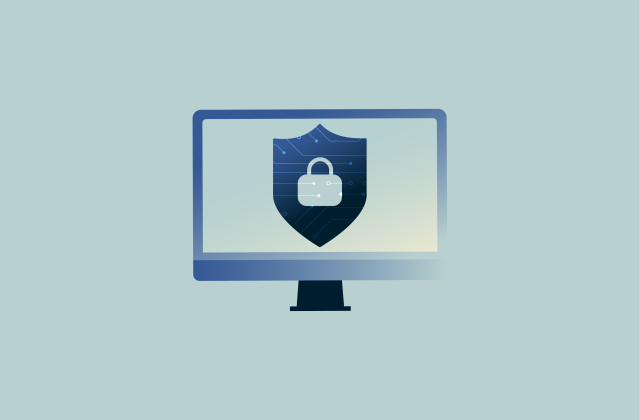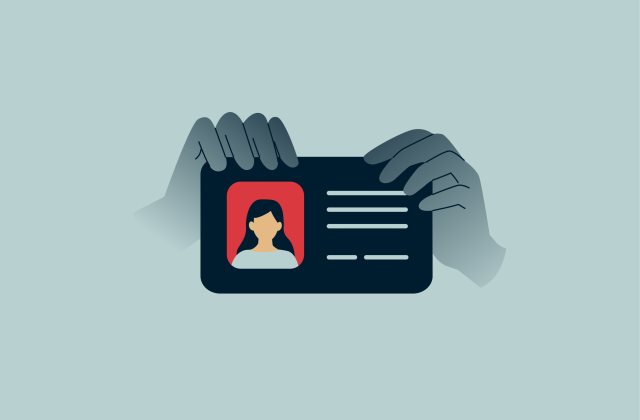Who can legally ask for your Social Security number?

The vast majority of U.S. citizens and residents have a Social Security number (SSN). These nine-digit codes were introduced in the 1930s with the sole purpose of tracking people’s incomes to work out which, if any, Social Security benefits they are entitled to.
Over time, however, SSNs have taken on a secondary purpose: identification. Since each number is unique and almost everyone has one, they’re helpful identifiers, and numerous entities might ask for your SSN to authenticate your identity.
Some of those requests are perfectly legitimate, but others are not. It’s important for people to know the difference between a legitimate and illegitimate request, and this guide is here to help with that, looking closely at who can legally ask for your Social Security number.
Please note: This information is for general educational purposes and not financial or legal advice.
When are you legally required to provide your Social Security number?
There are many situations in which people are legally obliged to comply with a Social Security number request. These include:
- Employers: Employers often need employee SSNs when filing their tax returns.
- Internal Revenue Service (IRS): The IRS uses SSNs for tax filings.
- Other tax authorities: State tax authorities also use SSNs for tax returns and related documents.
- Public assistance programs: Programs like the Supplemental Nutrition Assistance Program use SSNs to assess applicants’ eligibility.
- Department of Motor Vehicles (DMV): Your local DMV will ask for your SSN when issuing or renewing driver’s licenses.
- Medicare and Medicaid: Healthcare programs like these use SSNs to verify income and benefit eligibility.
- Child support: Enforcement officers use SSNs to track non-custodial parents and monitor their support obligations.
- Banks and financial service providers: Banks will ask for your SSN to verify your identity, report your taxable income to the IRS, or run a credit report.
- Education: Schools and colleges may ask for SSNs for tax purposes or for processing financial aid applications.
In these kinds of situations, if you refuse to submit your SSN, you could lose access to benefits and services.
When are you not required to provide your Social Security number?
Along with the aforementioned entities like the IRS, banks, and government agencies, numerous other entities and organizations may ask for your Social Security number. However, while these entities may have a legal right to request Social Security numbers, citizens have no legal obligation to comply. You can refuse to provide your SSN in any of the following situations:
You can refuse to provide your SSN in any of the following situations:
- Unsolicited messages: If you receive an unexpected email, text, or phone call asking for your SSN, it’s most likely a phishing scam. You should not give out your SSN to anyone you don’t know, even those claiming to be from trusted businesses or agencies.
- Retail businesses: Retail stores may ask for your SSN if you apply for a store credit card, for example, but you don’t have to give it, as they don’t have the same powers as banks and other financial institutions.
- Job applications: Once you’ve got a job and become an employee of a business, your employer has the right to ask for your SSN for tax purposes. However, during the job application and interview stage, you have no obligation to submit this information.
- Doctor’s offices: When you visit a new doctor’s office, they may ask for various pieces of personal data, which might include your SSN. Unless you’re a Medicare or Medicaid recipient, you don’t have to provide it.
- School enrollment forms: Public schools may also ask parents for their child’s Social Security number on the initial enrollment forms as a way to verify their identity. However, you’re free to opt for other identification methods instead. Note, however, that you may have to provide your SSN for educational financial assistance programs.
- Gyms: Gyms and fitness studios may ask for your SSN when you sign up to become a member, too. Again, they may do this for identification or billing purposes to more easily track down members who fail to pay, but there’s no mandatory obligation to provide your SSN.
Section 7 of the Privacy Act: Your rights when asked for your Social Security number
While numerous agencies and entities have the legal right to request your SSN, they must do so in accordance with the Privacy Act of 1974. Government agencies requesting SSN details have to follow this act, which outlines how agencies should collect, store, and use people’s personal data to keep it private and safe.
Section 7 of the Privacy Act, also known as the “Social Security Number Provision,” explicitly outlines the rules they must follow in regard to SSNs, which are:
- They must disclose whether SSN submission is voluntary or mandatory. If it’s voluntary, you’re free to present an alternative form of identification.
- They must cite a specific law or regulation that authorizes them to ask for your SSN, in order to provide a legal basis for their request.
- They have to explain how they intend to use your SSN, which might be for identity verification, checking your eligibility for benefits, or some other reason.
At the same time, there are certain exceptions to these rules. Specifically, if a federal statute requires that you submit your SSN, then the agency doesn’t have to offer any alternative. In addition, Section 7’s requirements do not fully apply to government databases that were already collecting SSNs prior to 1975, when the Privacy Act went into effect.
Questions to ask before sharing your Social Security number
In general, it’s wise to be cautious about sharing your Social Security number. There will, inevitably, be some situations in which you have to provide it, but there may also be cases where you’re better off keeping it to yourself and opting for an alternative method of identification.
Treating your SSN with care and limiting its exposure is one of the best ways to keep yourself safe from synthetic identity theft and other threats involving SSN exploitation. With that in mind, whenever a business or entity asks for your SSN, it’s recommended to ask the following questions before deciding whether or not to hand it over:
- Why do you need my Social Security number?
- Is there any alternative form of identification I can provide instead?
- How will you store and use my Social Security number?
- What are the risks/consequences if I don’t provide my Social Security number?
Quick reference: Required vs. optional Social Security number requests

What happens if you refuse to provide your Social Security number
Consequences can vary if you refuse to provide your Social Security number, depending on the nature of the request.
For example, if you fail to provide your SSN to the IRS, they may not be able to process your taxes. If you don’t give it to a bank when applying for a loan, they may not be able to complete your application. In many cases, entities may either be forced or choose to refuse service to those who refuse to provide their SSNs, so you could miss out on benefits, services, and products of various kinds.
However, in other situations, where alternatives exist, entities may simply offer you a different way to confirm your identity if you’re not comfortable sharing your SSN. You may still be able to obtain the services you need via one of these alternate methods.
Alternatives to sharing your Social Security number
Because of the risks involved in sharing your SSN, it’s best to opt for alternative means of identification or verification, wherever possible, rather than handing over your number. This isn’t always possible, but in some situations, you may be able to substitute one or more of the following for your SSN:
- Passport
- Driver’s license
- Individual taxpayer identification number (ITIN)
- State ID
How to protect your Social Security number from misuse
If scammers or fraudsters get hold of your Social Security number, the consequences can be grave. Scammers could open accounts or take out loans in your name, without your knowledge or consent. They could steal your identity, affect your credit rating, and even lead you into all sorts of legal trouble.
With that in mind, it’s important to take steps to keep your SSN safe, such as:
- Keep it secret: Avoid giving out your SSN whenever possible and always opt for alternative means of identification, if they’re available.
- Eliminate doubt: Always ask questions of any business or entity that wants your SSN to find out how it’ll be used, stored, and secured.
- Safeguard your card: Carrying your Social Security card around is a bad habit that could put you at risk of identity theft or fraud. Keep it somewhere safe at home instead.
- Shred documents: If you own or receive any documents that contain your SSN, make sure to shred them before throwing them away.
- Avoid unnecessary risk: Never give out your SSN via email, text, or other unsecure means. Use trusted and secure services every time.
- Monitor your data: Use dark web tracking tools, like ExpressVPN’s ID Alerts, to keep you informed about any possible leaks of your personal information.
What to do if your Social Security number is stolen
If the worst-case scenario occurs and you suspect or know that your Social Security number has fallen into suspicious or criminal hands, it’s important to remain calm but take action right away to prevent serious consequences from piling up. Here are the best steps to take:
File a police report
Contact your local police department to let them know what has happened and open an official police report, which will be important later on should you need to take legal action.
File a report with the Federal Trade Commission (FTC)
Visit the FTC’s Identity Theft website and follow the on-screen instructions to file an identity theft report. The FTC and other agencies, like the FBI, can then get to work tracking down the offender(s).
Notify your financial institution
Contact your bank, credit card provider, and any other relevant financial entities to let them know what has happened. They should be able to freeze your cards and accounts to prevent criminals from committing financial fraud or stealing your funds.
Place a fraud alert on your credit report
Contact the major credit bureaus (Equifax, Experian, and TransUnion) and request a fraud alert be placed on your account. That way, if the identity thieves attempt to open any new lines of credit or accounts, the lender or provider will see that the account in question cannot be trusted.
Sign up for an identity theft protection service
Identity theft protection services like ExpressVPN’s Identity Defender track your financial accounts and look out for any signs of suspicious activity, such as sudden drops in your credit score or loans taken out in your name. This can be a very effective way to spot and respond to possible fraud.
Review your credit report
Get into the habit of checking your credit report on a regular basis to look for any discrepancies or suspicious signs, like accounts you don’t remember opening.
FAQ: Common questions about Social Security numbers
Is it normal for a doctor's office to ask for your Social Security number?
Many doctor’s offices will indeed ask for your Social Security number the first time you visit, along with various other pieces of personal information. Often, they do this simply to make it easier to identify patients and track those that might miss payments, for example. You have the right to refuse to provide your SSN, unless you’re covered by Medicare or Medicaid, since it’s needed to confirm your eligibility.
Why do employers need my Social Security number?
Employers may need your SSN as part of background checks on new hires to verify their identities, as well as for filing tax forms, like the W-2. They may even ask for your SSN during the application stage, but you don’t have to provide it until you’re actually employed.
Can a landlord require my Social Security number?
Landlords may have legitimate reasons to request your SSN, as they may wish to use it to carry out a credit or background check and verify your identity prior to signing a rental agreement. Some may even reject prospective tenants’ applications if they fail to provide their SSN. However, the rules around this vary from state to state, so it’s important for tenants to look up the exact laws in their state for further details. In any case, you have no legal obligation to provide a landlord with your SSN if you don’t wish to.
Do Social Security number rules vary by state?
At a fundamental level, the issuance of Social Security numbers and the core rules around them are all governed by the Social Security Administration (SSA), which is a federal agency. However, many states have also established their own rules around how businesses and entities handle SSNs, and these rules can vary from one location to the next.
How can I check if someone is using my Social Security number?
There are several ways to check if someone else is using your SSN. You can check your credit reports for any signs of suspicious activity, like loan applications you didn’t make or accounts you don’t remember opening, and review your Social Security Statement, which you can view online via the SSA. You should also pay close attention to any notices or correspondence from government agencies, including the SSA and IRS, and file an SSN theft report if you believe your number has been stolen.
Is it safe to email my Social Security number?
No, email is not considered a safe way to communicate something as sensitive as a Social Security number, since there are always risks of emails being intercepted, forwarded, or accessed by unauthorized users. You should instead use secure methods like encrypted file transfer services and secure online vaults, or only share your SSN in person, where possible.
Take the first step to protect yourself online. Try ExpressVPN risk-free.
Get ExpressVPN



















